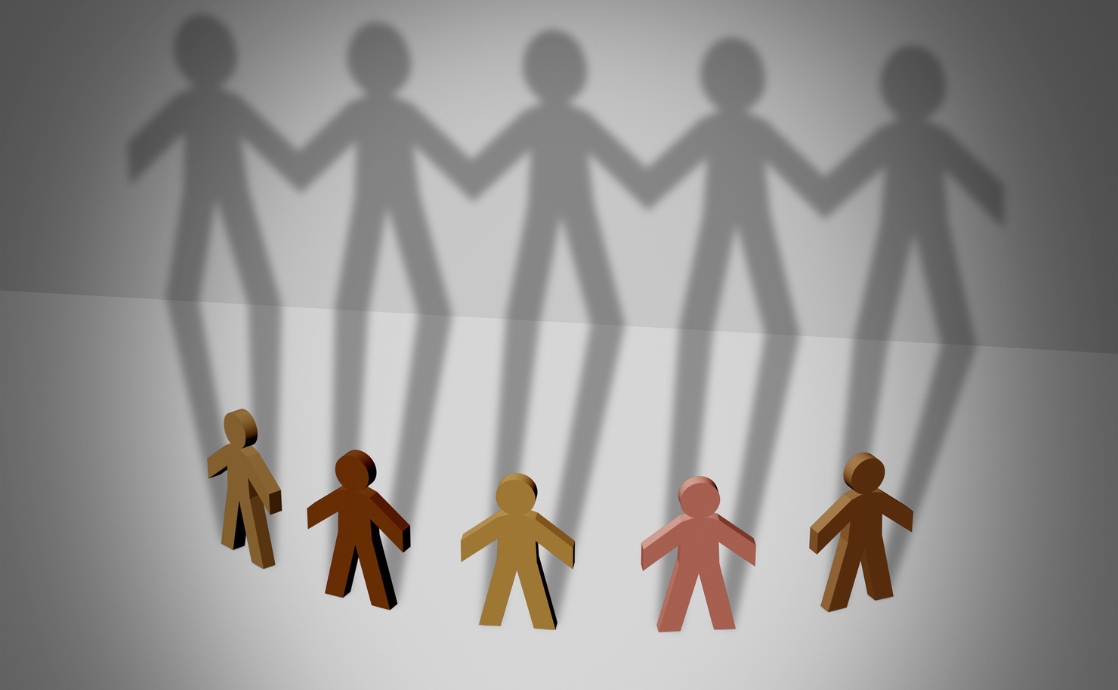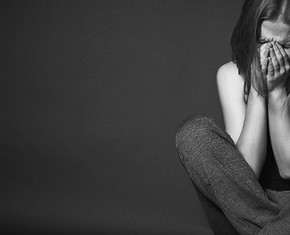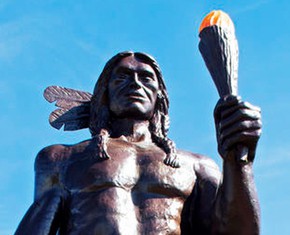The views expressed in our content reflect individual perspectives and do not represent the authoritative views of the Baha'i Faith.
The Baha’i principles – relatively unique and fairly characterized as new in the history of religions – represent dynamic actions rather than static precepts.
On June 19, 1913, Abdu’l-Baha, speaking to his audience under a tent pitched on the roof of the Hotel Sultani in Port Sa‘id, Egypt, made a key statement, posed in the form of a rhetorical question, provisionally translated by Adib Masumian: “… the abandonment of sectarian, religious, national, political, and racial prejudices — what Book contains this?”
The expected, if not obvious answer to this rhetorical question is: “None.” No previous religious scripture contains this powerful principle.
In other words, the elimination of prejudice, as a religious teaching, is relatively new on the historical religious horizon — and is therefore worthy of recognition. This core Baha’i principle further invites reflection and action in the course of personal and social transformation.
Since Abdu’l-Baha’s Port Sa’id speech harks back to his New York talks on November 15 and December 2, 1912, here are the relevant excerpts that pertain directly to this Baha’i principle, “Abolish every prejudice:”
Again, [Baha’u’llah] declares that:
Prejudice in all its forms … must be abolished.
and that until these prejudices are entirely removed[,] the world of humanity will not and cannot attain peace, prosperity and composure.
In which one of the sacred volumes do you find the annunciation of such a principle?
– Abdu’l-Baha, “The Distinctive Characteristics of the Teachings of Baha’o’llah [Baha’u’llah]: Address by Abdul-Baha [Abdu’l-Baha], November 15, 1912, at the home of Miss Juliet Thompson, New York City,” Star of the West, Vol. VIII, No. 3 (April 28, 1917), pp. 29–31 and 39–40 [p. 31, bracketed notes added], https://file.bahai.media/4/4e/SW_Vol8_No3.pdf. (Emphasis in original.) See also The Promulgation of Universal Peace, 15 November 1912, www.bahai.org/r/245499588, edited by Howard MacNutt).
And further:
The seventh of the teachings of [Baha’u’llah], which is new for this Day, is that prejudice and fanaticism, whether religious, sectarian, sectional, denominational or patriotic — are destructive of the foundation of human solidarity, so that man should release himself from such bonds in order that the Oneness of the world of humanity might become manifest. – Abdu’l-Baha, “Certain New Teachings of the Bahai Revelation Not Found in the Religious Books of the Past: Address by Abdul-Baha at 780 West End Avenue, New York City, December 2, 1912,” Star of the West, Vol. 4, No. 15 (December 12, 1913), pp. 253–255 and p. 258 [p. 254, bracketed notes added], https://file.bahai.media/6/67/SW_Vol4_No15.pdf. See also The Promulgation of Universal Peace, www.bahai.org/r/297488343 (edited by Howard MacNutt).
In his “First Tablet to The Hague” Abdu’l-Baha wrote: “And among the teachings of Baha’u’llah is that religious, racial, political, economic and patriotic prejudices destroy the edifice of humanity.” Here, five types of prejudice are identified: (1) religious prejudice; (2) racial prejudice; (3) political prejudice; (4) economic prejudice; and (5) patriotic prejudice.
Throughout the Baha’i writings, prejudices represent the root causes of social conflict and warfare. It stands to reason that whatever poses an existential threat to domestic tranquility and social should be abolished, and therefore should be replaced by actions and behaviors conducive to the best interests and general welfare of society at large.
How this Baha’i principle of the abolition of prejudice is translated into individual transformation and social action, over the course of time, is answered and ultimately projected into the future by way of prophecy. Shoghi Effendi, in his 1936 message titled “The Unfoldment of World Civilization” in The World Order of Baha’u’llah, has foreseen, forecast, and foretold the salient features of a future world commonwealth he characterized as “the golden age of civilization,” as follows:
National rivalries, hatreds, and intrigues will cease, and racial animosity and prejudice will be replaced by racial amity, understanding and cooperation. The causes of religious strife will be permanently removed, economic barriers and restrictions will be completely abolished, and the inordinate distinction between classes will be obliterated. Destitution on the one hand, and gross accumulation of ownership on the other, will disappear. The enormous energy dissipated and wasted on war, whether economic or political, will be consecrated to such ends as will extend the range of human inventions and technical development, to the increase of the productivity of mankind, to the extermination of disease, to the extension of scientific research, to the raising of the standard of physical health, to the sharpening and refinement of the human brain, to the exploitation of the unused and unsuspected resources of the planet, to the prolongation of human life, and to the furtherance of any other agency that can stimulate the intellectual, the moral, and spiritual life of the entire human race.
Here, the elimination of all five types of prejudice that Abdu’l-Baha set forth are finally accomplished, at long last: (1) religious prejudice – “The causes of religious strife will be permanently removed;” (2) racial prejudice – “racial animosity and prejudice will be replaced by racial amity, understanding and cooperation;” (3) political prejudice – “The enormous energy dissipated and wasted on war, whether economic or political, will be consecrated to such ends;” (4) economic prejudice – “economic barriers and restrictions will be completely abolished, and the inordinate distinction between classes will be obliterated;” and (5) patriotic prejudice – “National rivalries, hatreds, and intrigues will cease.”
In its 2022 letter “To the Followers of Baha’u’llah in the Democratic Republic of the Congo,” the Universal House of Justice issued a major statement on prejudice, focusing primarily on the pernicious and persistent problem of “ethnic prejudice,” which has plagued and imperiled vast regions of Africa. This spiritually and socially significant statement frames the problem of prejudice as follows:
The crisis of identity is directly related to the spread of prejudice. Today, prejudices of all sorts are surging around the world, infecting the consciousness of millions and despoiling them of their energies. They are polarizing societies at a time when unity is most vital to resolving local, national, and global challenges that seem intractable.
The statements in the writings of the Faith about the harm that prejudice inflicts on individuals and on society are most emphatic. Abdu’l-Baha has stated that human beings are degraded when they become captives of their own illusions and suppositions. Prejudice stains the human spirit, debases both its perpetrator and its victim, obscures perception and understanding, and prevents the achievement of that lofty standard of justice proclaimed in the writings to “see with thine own eyes and not through the eyes of others,” and to “know of thine own knowledge and not through the knowledge of thy neighbour.” Abdu’l-Baha has also made it clear that prejudice is “destructive of the human edifice”, “a destroyer of the foundations of the world of humanity”, and the cause of “the world’s sickness”. Until prejudice is removed, “the world of humanity will not and cannot attain peace, prosperity and composure”. “The world of humanity cannot be saved from the darkness of nature and cannot attain illumination except through the abandonment of prejudices and the acquisition of the morals of the Kingdom.”
Our particular concern here, as we have stated, is ethnic prejudice. To distrust, fear, hate, or discriminate against another person or a whole group on the basis of ethnicity is a spiritual disease. It is also a scourge that infects social structures and causes instability. In this light, eradicating ethnic prejudice requires transformation at the level of both the individual and the social environment. “We cannot segregate the human heart from the environment outside us”, Shoghi Effendi stated in a letter written on his behalf, “and say that once one of these is reformed everything will be improved. Man is organic with the world. His inner life moulds the environment and is itself also deeply affected by it. The one acts upon the other and every abiding change in the life of man is the result of these mutual reactions.”
The unique Baha’i principle of abolishing every prejudice, when translated into practice, can become “a distinctive characteristic of Baha’i community life,” as the Universal House of Justice further explains:
Your endeavours to reach different social groups with the message of the Faith foster profound interethnic and intercultural association. They make cooperation and mutual assistance among people of many backgrounds a distinctive characteristic of Baha’i community life.
The Universal House of Justice closes with a special message to the youth:
The future is in your hands. Make no mistake, you are raising an edifice that will be a haven for your peoples upon the foundations your mothers and your fathers have laid. Continued progress will depend on your dedication to building true unity and on the extent to which you strengthen your practice of those spiritual disciplines enjoined by Baha’u’llah that help you polish the mirrors of your hearts to reflect the attributes of God. We hope that you will foster among yourselves enduring spiritual bonds that resist the forces of prejudice. … Let your deeds write the next chapter of your country’s history, one that is free of prejudice and conflict. Thus will your peoples, each as a powerful tributary, stream into one mighty river, whose surging waters will gush forth into the ocean of one human family.
Can you imagine it – living in a prejudice-free society? The global Baha’i community works toward that lofty goal every day.
















Comments
Sign in or create an account
Continue with Googleor